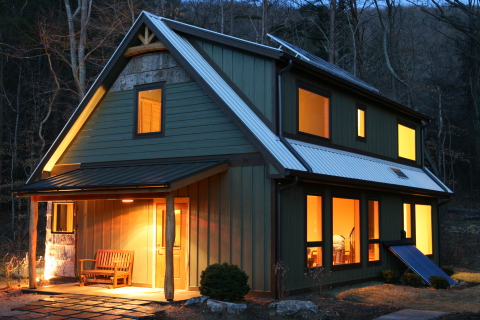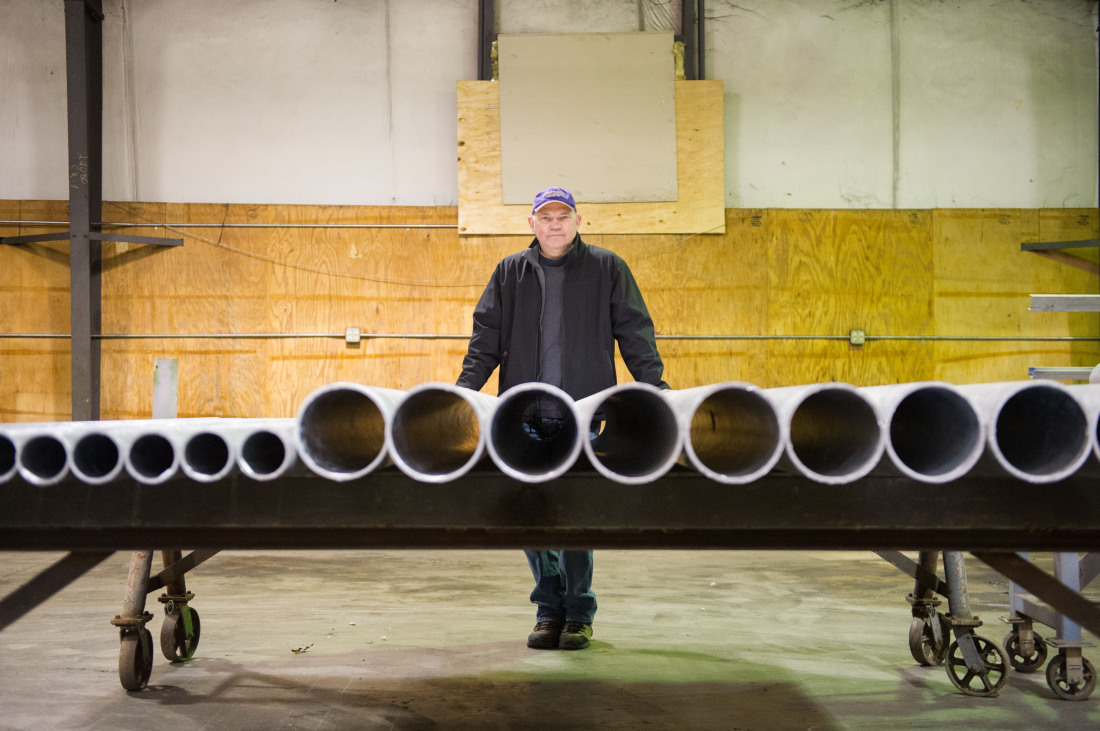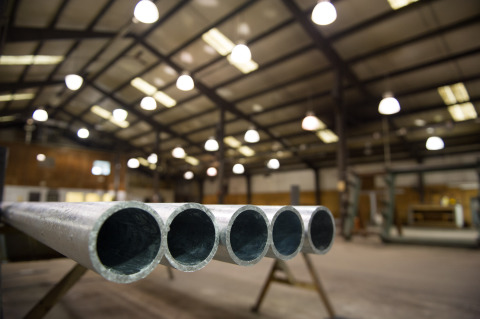Alternative or clean energy is defined as energy coming from sources such as wind, biomass, hydroelectric and alternative fuels. For a long time the industry has been considered futuristic, unestablished, maybe even a little strange. But with efficient and affordable advances in technology, juicy state and federal tax incentives, and the ability to keep both jobs and cash local, alternative energy is no longer a fringe provider but a serious plan for the future.
Data collected by the North Carolina Sustainable Energy Association shows that the alternative energy sector contributed $4.8 billion in annual state gross revenue in 2014. All that revenue is a result of local jobs that are booming.
According to NCSEA, from 2012-2014, employment in the alternative energy industry increased from 15,200 to 22,995 full-time-equivalent jobs in North Carolina — which means an annual increase of 25 percent.
Solar’s hard-won battles
Solar power is the big growth sector for the state, owing its success (a 34 percent share of the clean energy revenues) to rising technology, plunging costs and some of the best tax breaks in the country. There is currently a 30 percent federal tax incentive and a 35 percent personal renewable energy tax credit in North Carolina. The state tax credit, implemented five years ago, includes a maximum rebate of $10,500 per installation of solar photovoltaic systems of any size and has catapulted North Carolina into the No. 4 state in the nation for solar energy installations.
For some Buncombe residents, like Gary Ball, North Carolina’s progress is also propelling personal change. Ball owned and operated Ball’s Machine & Manufacturing Co. in Candler for most of his adult life. The shop was a multigenerational family business that once serviced more than 100 industrial companies. But by 2008, the company’s business was reduced to just 30 industrial clients, and Ball realized the need to diversify.
Ball started a new endeavor, called Solarnomics, seven years ago and saw sales increase steadily every year, while business at his machine shop either stagnated or went down. Ball pulled the plug on the old business, auctioning off thousands of dollars of equipment to fully focus on the solar industry — namely making support poles and roof structures for panel arrays.
Ball partners with FLS Energy in Asheville for electrical services and installation, but he says the solar installation itself is amazingly simple.
“This is like a big Tinkertoy set,” he says. “The hardest part of installation is digging a hole in the ground.” His systems are all made in America, and in some states, such as Mississippi and Louisiana, don’t even require an electrician to fully install them.
Solarnomics also installed the mounts for solar car charging stations in downtown Asheville, ready to replenish the batteries of electric vehicles. In addition to all this, the company is making friends in some unexpected places. In Ball’s large shop in Candler sits an 8 feet tall mock-up of the oil derrick Solarnomics has been working with off-site. The company provides the solar systems for a major oil company’s rigs. The solar power is used to propel the pumps that draw oil out of the Earth — quite the juxtaposition.
“The solar panels can provide about 90 percent of the power the derrick needs,” Ball explains. “I had one oil guy tell me, ‘Don’t tell anyone we’re using solar panels out here.’”
Whether or not the oilman was joking, the realization that homes can operate as their own fully independent unit, free of a grid at the mercy of big energy pricing and policy, is a huge step forward for society, says Dave Hollister, president and chief executive officer for Sundance Power Systems in Weaverville. Hollister says the economic model that solar power operates on is basically the opposite of traditional, “dirty” energy sources such as coal, oil and nuclear.
“With solar, you pay a lot upfront right now, but the fuel is free forever and is unlimited,” Hollister notes. “There’s no way dirty fuel can compete with that. Their model is you pay a little up-front, but the cost goes up over time and can eventually skyrocket as the fuel gets scarce.”
Sundance was founded in 1995 with the core mission to help people and the planet, but also to turn a profit. The company started working with wind, solar and radiant floor heating systems, but during the last five years, as photovoltaic systems have dropped in cost by half, Hollister has focused only on solar.

The drop in cost has been supercharged by another factor Hollister says has bolstered sales, something that transcends politics — the fact that a pricey solar panel system can now add equity to a home’s value.
“The value of the system can now be placed on the value equity of your home,” said Hollister. “This adds more value to the house than what you’ve put into the system. This is now officially acknowledged by appraisers, which was a hard-won value by us.”
Consumers can now add solar panels to their home for roughly the same cost as a moderately priced new car, eliminating or drastically cutting their energy bills and potentially getting that money back (and more) through the increased value to their house should they decide to sell. Adding another cherry on top, solar-powered homes have the advantage of selling faster in an underperforming national market.
“Green homes have proven to hold their value and sell faster during the market crash that we just experienced,” says Maggie Leslie, director of the Western North Carolina Green Building Council. The 260-member, nonprofit educational organization is dedicated to building sustainable, energy-efficient communities. Leslie said green homes, which have been in demand more and more, not only use less energy, but also bring other benefits to the consumer.
“Typically, the cost is about 1 to 2 percent higher to build a green home, but the cost is quickly recouped,” Leslie explains. “At a minimum, this is about quality construction and also includes air quality audits, pest barriers and green materials.”
Fuel for thought
Solar does have the ability to charge a car, but a transportation sector that could really keep jobs in North Carolina is the biofuel industry, currently expanding at a rapid rate locally at Blue Ridge Biofuels.
According to Woody Eaton, co-owner and CEO, the company processed 30,000 gallons of bio-fuel in their first year. Flash forward ten years: Blue Ridge Biofuels recycled 400,000 gallons of bio-fuel from discarded cooking oil in 2014 alone.
The oil itself, which is used in diesel engines without any modification, is a golden, french-fry-smelling liquid that boasts 100 percent biodegradability, increased fuel economy and is 85 percent cleaner-burning than traditional diesel. It is less toxic than table salt, and the current cost per gallon is about 50 cents higher than diesel (which had dramatically dropped in price at the time of this report).
“Biodiesel is great for the local economy,” Eaton says. “North Carolina imports every gallon of fuel, except biodiesel. When we focus on domestically produced fuel, the money stays in state.”
Eaton reports that North Carolina is one of the largest biodiesel consumers in the country, with growth potential looming larger on the horizon. It has the lowest greenhouse gas emissions of any fuel, which should attract the attention of anyone wishing to limit their ecological footprint.
“This is one of the easiest, quickest ways to reduce carbon emissions,” says Eaton, mentioning that his company’s biggest customers are owners of small diesel cars. “People can easily make the choice to reduce their carbon emissions; it’s as easy as switching fuels.”
For providers, the fact that alternative energy can cut the tether to large energy corporations and empower the masses, all while helping the environment and providing local jobs and revenue, is tantalizing.
At the crossroads
While the growth in solar energy is remarkable, it isn’t entirely smooth sailing for alternative energy. The federal residential renewable energy tax credit is set to expire at the end of 2016, and the 35 percent state refund is set to expire at the end of 2015, possibly going away forever.
“It would be insane to eliminate this tax credit, unless you eliminate tax credits for all other forms of energy,” says Ned Doyle, producer and host of the “Our Southern Community” radio program for the last 15 years. Doyle coordinated the Southern Energy and Environment Expo from 2001 until 2010 and speaks regularly around the region on sustainable topics for groups, colleges, events and seminars.
Although there is much talk about alternative energy subsidies, Doyle says no special treatment is given to solar and wind, and in fact, many more tax breaks are awarded to coal, nuclear and hydraulic fracturing energy methods. Doyle adds that state and federal lawmakers are “lunatics” if they want to intentionally slow down an industry that is poised to be on a runaway train to success, solving a lot of social and economic problems along the way.
With solar power, Doyle says, jobs are contained within the state or region. Money isn’t whisked away to energy concerns across the world. The money goes to installers, electricians and equipment suppliers in America.
“We’re at a crossroads now,” Doyle says. “All the technology is available today. With conventional fuel sources, people are seeing the writing on the wall, and they’re pushing back. There’s a measurable shift underway, and that’s why there may be a confrontation politically this fall.”
Back at Hollister’s shop, the idea that solar technology can spark a shift in society, or even a social revolution, hangs in the air. He says the United States is on the cusp of something major, akin to the social and fiscal implications of the introduction of the automobile or development of the Internet.
“Solar doesn’t privatize profits and socialize the losses,” Hollister says. “I feel that every customer who has made the choice to switch to this energy is a hero of the planet. This is a poignant and crucial time for solar energy to change humanity’s relationship with our future and with the planet. It’s really that important.”






j